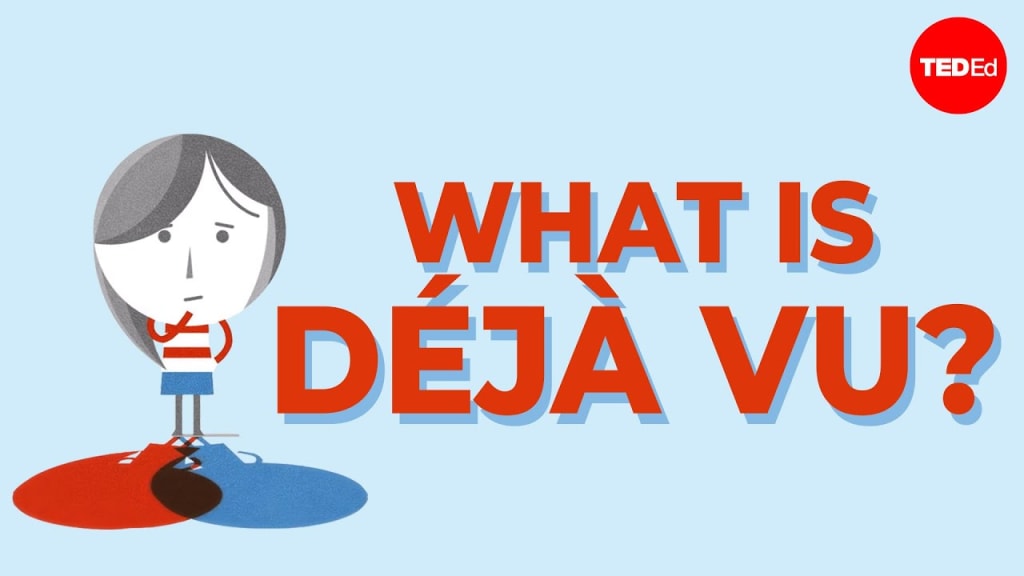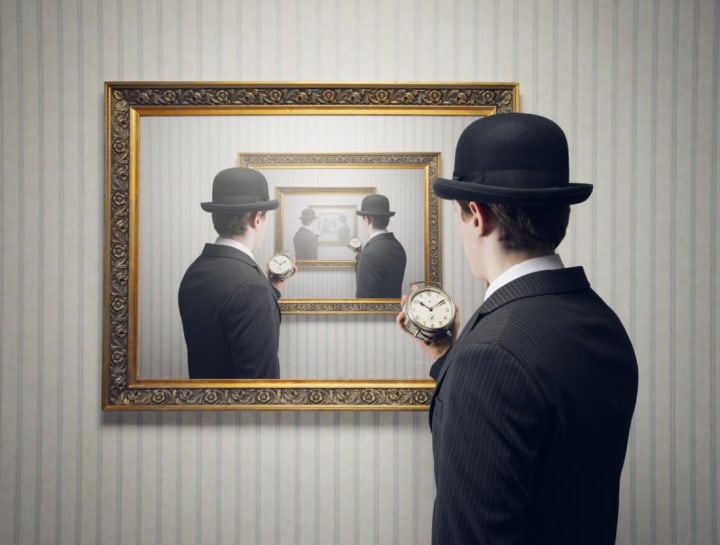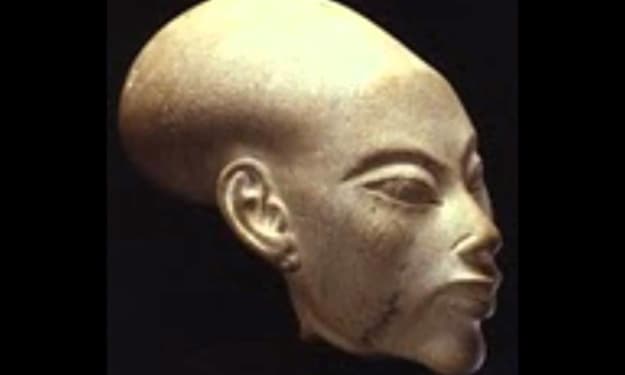Content warning
This story may contain sensitive material or discuss topics that some readers may find distressing. Reader discretion is advised. The views and opinions expressed in this story are those of the author and do not necessarily reflect the official policy or position of Vocal.

The term déjà vu, which means "already seen" in French, may seem self-explanatory, but it piqued the interest of a parapsychologist, someone who investigates psychic phenomena, in the past. At the time, déjà vu was considered so unusual that it was often associated with the supernatural, much like clairvoyance or mediumship. Many regarded it as a phenomenon related to reincarnation or even alien encounters. The scientific community has only recently started taking déjà vu seriously, although public perception hasn't necessarily followed suit. A 1991 Gallup poll placed déjà vu alongside astrology, paranormal activity, and ghosts in the realm of superstitious beliefs.

Déjà vu, a term that now broadly describes the feeling of unexpected familiarity, encompasses several distinct variations. Déjà entendu refers to the sensation of having heard something new before. Déjà pensé involves thinking you've had a particular thought previously when you haven't. Déjà goute pertains to feelings of familiarity related to food, and déjà voulu is the sense of desiring something or someone you haven't actually desired before. It's crucial to differentiate déjà vu from precognition, where individuals believe they can predict future events. Precognition is more akin to claiming psychic abilities.
To explore the phenomenon, psychologists conducted experiments, including direct stimulation of the frontal cortex, which induced déjà vu but did not grant predictive abilities. Recent research has further separated déjà vu into two main categories: regular, seemingly random déjà vu experiences and pathological déjà vu associated with neurological conditions like temporal lobe epilepsy. The latter is easier to study and originates from damage or malfunction in the frontal lobe, responsible for memory.
Pat Long, a man with a severe case of déjà vu, experienced extended episodes where he couldn't distinguish past experiences from the present due to a brain tumor. Epileptic seizures often trigger déjà vu, and there's a related phenomenon called Jamaiss vu, where familiar situations feel foreign.
The causes of déjà vu remain a subject of debate. Some researchers suggest it arises from a malfunction in memory processing, while others propose it serves as a conflict resolution mechanism to prevent false memories. Forgotten memories might also trigger déjà vu, as less important or infrequently accessed memories tend to fade but not disappear entirely. Frequent travelers tend to experience déjà vu more often, possibly because they encounter situations similar to dimly remembered ones.
Sigmund Freud linked déjà vu to repressed desires and traumatic memories, although he had a penchant for relating everything to such matters. Another theory, dual processing, posits that déjà vu occurs when one hemisphere of the brain processes information slightly faster than the other. Additionally, divided attention may cause déjà vu when subconscious observations of a new situation precede conscious processing.
Despite various theories, the exact cause of déjà vu remains uncertain. Recent research suggests that people who experience it frequently use different brain regions to retrieve memories than those who rarely do. Frequent déjà vu may indicate better memory retention. It's worth noting that déjà vu is most common among individuals aged 15 to 25, suggesting it may be linked to youthful memory processing abilities. Some unconventional explanations, like those from movies, suggest déjà vu as a glitch in the matrix or evidence of a simulated reality, but these ideas are far from scientific consensus.
About the Creator
Enjoyed the story? Support the Creator.
Subscribe for free to receive all their stories in your feed. You could also pledge your support or give them a one-off tip, letting them know you appreciate their work.





Comments
There are no comments for this story
Be the first to respond and start the conversation.